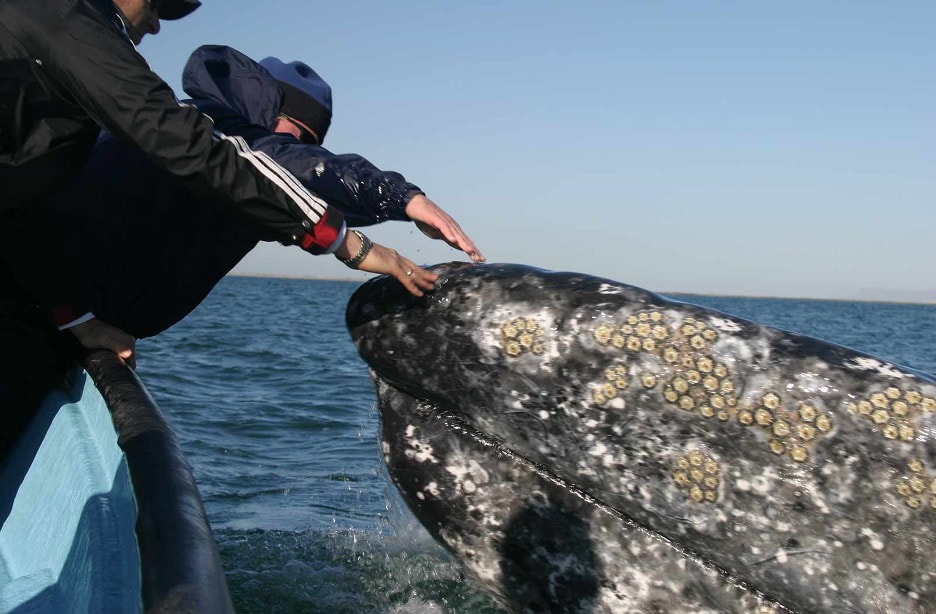|
BY JOYCE PELLETIER
‘Grace in Christian theology is the spontaneous, unmerited gift of the divine favor in the salvation of sinners, and the divine influence operating in individuals for their regeneration. It also alludes to elegance and courtesy.’ It also means that when things get tough, you don’t have to give into the difficulties and challenges of facing a tough situation. Surrendering your life to Jesus gives us the gift of grace to allow God to be there to help us through all things. That includes the Good, the Bad and the Ugly. His Word tells us in 2 Cor 12:9, “My grace is sufficient for you, for my power is made perfect in weakness. Therefore, I will boast all the more gladly of my weaknesses, so that the power of Christ may rest upon me." When we admit our shortcomings, it makes it real, yet it doesn’t have to knock us down. God promises us in Eph 2:8-9, "For by grace you have been saved through faith. And this is not your own doing; it is the gift of God, not a result of works, so that no one may boast." Many years ago, I had to face some challenges I never thought I could do. Our daughter was the first grandchild in the family. She doted on her, as well as the other two grandkids. When Jackie was planning her wedding, we noticed something different about Mom. Her normal mode when we were together was to go to extremes to celebrate whatever was going on. Her granddaughter’s wedding was so different. It wasn’t “Mom.” They came to Vermont to be with us, and they enjoyed the festivities that go with a wedding. At the time of the wedding, I was so involved in helping our daughter with the preparations, I was too occupied and distracted, I just pushed it aside. I knew something was different, yet in my distractions, I was able to just push it aside, besides I could get it figured out after festivities. A few months later, I received word from my brother that they took Mom to the doctors so they could run some tests. They discovered she had Alzheimer’s Disease. I didn’t know much about the disease, but I did what I could to get my parents to move to Vermont. They agreed. It was four years of rebuilding our family. Coming from a dysfunctional home, those years, God led us through a lot of healing and they were the best years ever. In 1997, we had to place Mom in a nursing home, as the care that was needed was causing my Dad more issues with his health. The following February, my Dad was also placed in the same nursing home because of his failing heart. These few years were filled with pain for me. Visiting them was quite difficult. Mom couldn’t hold a conversation, Dad fell into depression because of his health. Some days when I finished my visits with them, I’d get in my truck and sit there and cry, sometimes I’d scream at God before I could drive home. The days when Mom didn’t know me were the most difficult. During that time, my brother came for a visit from South Carolina. We’d been estranged for over 40 years. During that weekend, we were completely reconciled. Less than a month later, David passed away in his sleep. Less than 2 months later, my Dad passed away. Mom hung on for three more years. It’s now many years later, and God taught me so much about myself and his relationship with me. I struggled with my losses, but I knew all three of them were with God in heaven. They believed in Jesus and were not afraid to die. The dependance I put on God grew, and from those years of loss, was life-changing for me. In Hebrews 4:16, "Let us then with confidence draw near to the throne of grace, that we may receive mercy and find grace to help in time of need." John 1:16 says, “And from his fullness we have all received grace upon grace.” God’s Grace, (the Holy Spirit) is the promise from God given to us. In Acts 2, you will see that His Ascension back to Heaven didn’t mean he was abandoning us. He left us a gift of the Holy Spirit to be in all the hearts of believers. As the song says, “Only by grace can we enter, Only by grace can we stand, Not by our human intensions, but by the blood of the Lamb.” This year of the ‘tent caterpillars’ defoliating our trees, yet a few weeks after they died off, the leaves are returning. That is an Act of God’s creation to not fret. We just need to move forward. BY JORDAN MAYER
"Pray without ceasing..." (1 Thessalonians 5:17) In 1 Thessalonians, Paul closes out his first letter to the church with some final instructions. Among a litany of other charges, he writes three short, but impactful words: “pray without ceasing”. This is not the first time Paul has used these words. Elsewhere in the New Testament, Paul opens his letter to the Colossians by saying that he and Timothy, “…have not ceased to pray for you...” (Colossians 1:9). How is it that Paul could be so bold as to claim this? And it begs a few questions for how we could possibly pray without ceasing in our own lives. Should we be mindlessly repeating a few scripted prayers? Should we lock ourselves inside our homes and isolate ourselves from the outside world in order to fully devote ourselves to prayer? Is Paul's charge out of touch with the demands of our fast-paced, modern world? It doesn’t take long to realize that this definition of “ceaseless prayer” is neither practical or possible, nor is it the message Paul is trying to get across. For me, I have found it helpful to first remind myself of what prayer truly is: a conversation with God. Prayer is not mere religious utterings, it is the intimate and direct communication with the God of the universe! So, ceaseless prayer is the kind of conversation that is never quite finished. It's about adopting not only the action of prayer, but an attitude of prayer. Ceaseless prayer is the opposite of occasional prayer or inconsistent prayer. It's about taking God through your day. As we awake in the morning, our first conversation is to thank God for the night’s rest and the gift of a new day. We thank Him for who He is and what He has done. Before the day’s to-do’s begin to pile up, we pray over the day's needs and seek His wisdom, guidance, and strength. When the unexpected trials pop up in the middle of our day, we take them to the Lord in prayer. When we return home and settle in for the night, we recount the day's blessing. Hour by hour, minute by minute, we keep lifting up our prayers to our Heavenly Father. Thanking Him for His blessings, confessing our sins, seeking His will, asking for His deliverance. This is a habit I’ve been trying to build in my own life. How easy it is to begin my day in prayer, and then fail to offer up another word to the one who sustains my very life. I get into the office and am quickly overcome by the hustle and bustle of the day's activities. Before I know it, the day is over and I've missed precious moments with my Lord. There is a time and a place for dedicated and extended sessions of prayer, but we are also invited to infuse moments of prayer into every day life. God wants to hear from us, not because we are telling Him anything that He does not already know, but because it demonstrates our willingness to come to Him in faith and trust, in relationship. Begin the day in prayer. Go through your day in prayer. End your day in prayer. Each day and every day. In the beautiful hymn, In the Garden, C. Austin Miles speaks of this intimate relationship he shares with His Lord and Savior as he walks in his garden in the cool of the morning. "And he walks with me And He talks with me, And He tells me I am his own; And the joy we share as we tarry there, None other has ever known." (In the Garden by C. Austin Miles) BY MARTHA CHEVALIER
"For God says, 'At just the right time, I heard you. On the day of salvation, I helped you.' Indeed, the “right time” is now. Today is the day of salvation." (2 Corinthians 6:2) Returning home from co-leading a biannual retreat for women battling or surviving cancer, I pulled off the isolated road to wet a line (go fishing). It was raining steady when I stopped, and by the time I had donned my waders and laced up my boots, the weather had morphed into a deafening downpour. I stepped into the fast-moving water on this unfamiliar river. I enjoyed the reassuring feeling of my studded boots securely gripping the slippery rocks. My glasses were useless, steamy, and the rain pounded unrelenting. My concentration was set as I worked hard to tie on a fly. Something emerged out of the river directly in front of me. I had no idea what it was, but based on the splash, I knew it must be large, perhaps an otter? Unwilling to break my focus from tying on the fly. I spoke out loud to whoever/whatever was bobbing at this point very near my left hip. Holding up my index finger and in the tone of a patient mother, I said out loud “hold on, I’ll get to you.” I was interested…. Moments later, I looked up to behold a king-size loon, less than arm’s length away... in borrowed words from Maya Angelou, “this creature was trailing wisps of glory.” What could this possibly have to do with the bible? Occasionally, while reading the bible, I stumble upon my own “wild loon moments.” Sometimes the words on the page take on unusual bursts of glory. It’s as though normal time and experience shifts from business as usual to anything but usual. Water to wine moments, simple bread becomes a feast. … The ancient Greeks reflect such moments in their vocabulary, expressed through two separate words for time. Kronos, expresses time that’s ordinary, sequential, chronological, as opposed to a Kairos. Kairos has an eternal component, lasting, unusual, remarkable, infused with wonder and awe. The bible has many moments that feature Kairos time. The greatest Kairos wonder is found in John 3:16. For God so loved the world he sent his Son. Kairos tends to emerge suddenly, just like my loon. Moments when we come alive, encountering the living God at a precise moment in time. I suppose it’s akin to climbing into a dusty attic wardrobe, beholding the wonders on the other side. Moses had a burning bush (Exodus 3), Mary had a visit from Gabriel (Luke 1), Jacob encountered God through angels ascending and descending at Bethel while resting his head upon a rock (Gen 28). Elijah heard the still small voice (1 kings 19). Ezekiel saw the wheel within the wheel (Ezekiel 1). John, the beloved, encountered Jesus yielding wild revelations on the Greek Isle of Patmos. Are we any different? We are not. “Suddenly my righteousness will come near, and my salvation will be shining out like the light; the sea-lands will be waiting for me, and they will put their hope in my strong arm.” Isa 51:5 BY JENNIFER RUTHERFORD
"Fixing our eyes on Jesus, the pioneer and perfecter of faith. For the joy set before him he endured the cross, scorning its shame, and sat down at the right hand of the throne of God." (Hebrews 12:2) If you’re anything like me, without even knowing it, your focus is negative before it’s positive. From the moment I wake, I’m mentally assaulted with the “to do” laundry list of the day. I’m preparing for what I need to get done and who I need to deal with in order to accomplish those tasks. Throughout the day, I am only too aware of something I said to someone that I’m not sure how they took? I’m keenly focused on how I just blew my diet and there is zero time to exercise. My time is side-swiped by a problem that has emerged with my children that makes me scared and fearful and on top of that an unexpected bill popped up. I’m annoyed with how someone treated me. I have a list of things I need to accomplish and no time to fit everything in. I’m bummed I still haven’t reached out to so and so who has been waiting for a response. I didn’t complete a task or assignment. The list of joy suckers IS BIG and long. Before I know it, I can grow a negative, joyless mindset and FAST! Take a moment, my list might be different from yours, but can you relate? I bet we all can as it’s part of the human condition in a fallen world. I don’t mean to be a negative Nancy. Sure there are some tasks that are more pleasant than others. Sure, there are happy things throughout the day, but by-and-large, I’d say as a society, we treat life and our responsibilities as an odious task we need to get through. After-all it’s called “the grind” or “the rat race” for a reason, right? If there isn’t some truth to those statements, escapism through media, drugs, food and on wouldn’t be such a struggle. We wouldn’t have the same level of problems with anxiety, depression and we wouldn’t live our lives for the weekend! Look back at my list above. Is it any wonder why I flip on my device, click facebook or insta and scroll? Just a little numbing please. Most of us, I’d say, rehearse, (to go over and over something), our trouble and problems. We think about them almost non-stop. We tell our friends, family and co-workers (another form of rehearsal). We wake up and go to bed with many of the same things on our mind. At night, we are often super aware of what we didn’t get done and what we need to muster up for tomorrow. The truth is, long before we ever rehearse the fruits of the spirit: love, joy, peace, patience, kindness, generosity, faithfulness or self-control, our mind and actions do a deep dive that fixes itself on a negative thought life. Our brains are one of the most amazing and complex organs in our body. It’s responsible for our ability to walk, talk, feel, see, hear, remember things, breathe and more. Without straight geeking out, I’m going to give you the super basic 20,000 feet above ground version. Our brain is comprised of over 100 billion neurons connecting with other neurons around themselves to send and receive information in the form of electro-chemical signals. Neural pathways are the connections established between those neurons that give the information sent and received meaning. When we learn to ride a bike, or maybe a baby learns to walk, it rapid fires laser like signals through the brain. At first, those signals are weak. With repetition, we strengthen those signals, which form our neural pathways. Now as an adult, I don’t need to think about walking or riding a bike because it’s a well formed “dominant” neural pathway in my brain. If that’s true about walking and riding bikes, you can imagine how repetitive patterns of how we think and feel can also create “dominant” pathways. Our thoughts shape our reality. Is it any wonder why secular spiritualism has attached itself to things like “manifesting” and there are whole practices of cognitive behavioral therapies. Our minds are powerful and our enemy, Satan, knows it and uses it to his advantage. Is it any wonder that in Philippians 4:8 we are instructed to think about, (and fix our mind on), whatever is right, pure, lovely, admirable, excellent or praise worthy? In 2 Corinthians 10:5, we demolish arguments and every pretension that sets itself up against the knowledge of God, and we take captive every thought to make it obedient to Christ. In 1 Peter 1:5 we are instructed to cast all of our cares or anxieties on Him because He cares for us. My husband, Jason and I had a similar dream about leeches. We both marveled at how weird it was that we had such a similar dream. I started to look up Biblical interpretations of leeches. I read about the science of leeches and how their teeth puncture the skin, they insert a venom that creates blood flow and then they suck away! They suck blood! The very marrow of life. As I was writing this, I became aware that the list I started with above is like little spiritual leeches sucking the blood and marrow of my walk in Christ Jesus. They are joy suckers and joy is the marrow of our walk in Jesus! In Hebrews 12:2 the Bible says, “Fixing our eyes on Jesus, the pioneer and perfecter of faith. For the joy set before him he endured the cross, scorning its shame, and sat down at the right hand of the throne of God.” What we know about Jesus’s time in the garden before his brutal murder was that he was terrified. He was sweating blood. He was asking the Father if this cup could pass. Clearly, that was a “no”. The Bible says, “for the joy set before him he endured the cross”. Hang out with that verse for a minute and put yourself in his shoes. How did God’s son suffer through one of the most heinous murders ever committed? He anchored himself to joy. He anchored himself to joy? He anchored himself to joy! Look, I don’t know about you, but this is one of those moments when I get a ‘heaven’s talking download’ in my brain (some call it epiphany) and I realize when the Bible says “we haven’t striven unto death” and “pick up your cross and follow me” that I’m being challenged to look at a thing differently and to make a change. If Jesus could somehow make it through a literal death anchoring himself to the joy set before him and we are calling ourselves “Christians” and we are playing ‘the game of life’ sporting heaven’s jersey... what is our life supposed to look like and HOW do we have joy in the midst of all the trouble? There are a couple of keys in the verses above. Joy is a mindset that requires making up your mind. Let’s look at the word: mindset. We set our mind. We take every thought captive that exalts itself against the knowledge of God. This means we become aware of our thoughts and we break agreement with the ones that don’t align with the kingdom of heaven! Most people that have ever had a leech sucking their blood, want it off RIGHT AWAY! And that is how we have to treat those pesky leech like thoughts that try to attach themselves to our joy and suck! We can’t wait until we have the feeling of joy. We have to cultivate joy. To grow it! To make it become the “dominant” pathway in our brain and to do that, we need to stop rehearsing trouble! We learn to cast our cares and anxieties on Jesus because we know that he cares for us. Notice I said “learn”. You might not be in the practice of going to Jesus with your cares and anxieties. Those mental pathways might be weak because you’re like the equivalent of a baby learning to crawl. The good news is, perfect practice makes perfect. “We have not because we ask not or we ask amiss.” If there is anything lovely, of good report, peaceable, righteous and on, we let our mind focus on those things. If you’re like me, (yes, I’m aware that I’ve said that a lot), your mind rehearses trouble before it rehearses good. I’m a lot like Peter. I step out of the boat, I’m stoked to be doing something with God and then I lose my focus, start to think about my circumstances and before you know it, I’m sinking! Half the time, I think I’m afraid to believe the good because you never know what might sideswipe you and steal that joy and it’s better to stay realistic in our expectations than to feel the crash and burn of sadness. That might be safe, but it isn’t kingdom. Jesus didn’t stay safe. Let’s go back to how powerful our brains are in creating our reality. How you look at your children, parents, spouse, siblings responsibilities, interactions and oh hey… how you look at yourself and the grace you give yourself – all the things MUST bow it’s knee and confess that Jesus Christ is Lord. He is our plumb line. The thing we measure our lives against. He is our standard. Hebrews says “fix our eyes on Jesus”. When we change the focus of our thoughts to joy, to Jesus, to gratitude and praise – we anchor our self to joy like Jesus and we more than overcome the world. Pro tip: it doesn’t all happen over night. How long did it take you to build your thought patterns? Start by asking Holy Spirit to help you watch your thoughts and cultivate a heart of gratitude. The Bible says “in everything give thanks”. Yeah, I know how annoying I sound. Yes, give thanks for your problems. Find the joy in them. If you can’t see it, ask Jesus to show you. Don’t beat yourself up for slipping into old patterns, just cast that care on Jesus and give thanks that you recognized it. You’ve got Jesus and He’s got this, which roughly translated means - you’ve got this! |
Archives
July 2024
Categories
All
|





 RSS Feed
RSS Feed